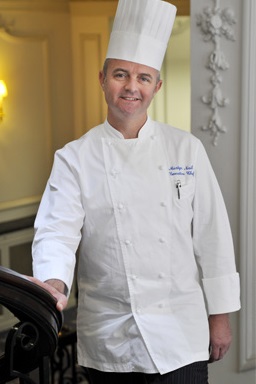“When I applied for Claridges, I joined a long queue outside the kitchen door”, explained Martyn Nail, executive chef of Claridges.
He was introducing a talk held at the hotel last week which was presenting and discussing Centre of London’s findings into the levels of retention of chefs.
According to Martyn, technology changes rendered this practice of queuing into a large bank of CVs, always on file, ready to  peruse when someone left their kitchen to find their next chef. Then this bank diminished.
peruse when someone left their kitchen to find their next chef. Then this bank diminished.
Now, recruitment is a slog of placing adverts, sifting through unsuitable CVs, only for interviews and trials not to turn up. A pattern that I’m sure is familiar throughout the country.
When that elusive chef is finally located, employed and inducted into the team, retention becomes an issue.
According to statistics, in 2017, the UK lost 10% of its chefs. This amounts to 20,000 choosing to leave the kitchen in one year.
Clearly there are significant issues in both attraction and retention of chefs in the UK. The talk last week was based on evidence gathered from a study of London, but this is very much an issue nationwide.
The difficulties in attraction were attributed to a number of reasons. Firstly, the fact that in many cases pay is low and working hours are long and unsociable, it is very difficult to entice teenagers leaving school into giving up their weekends to toil away in a kitchen.
Then there is the fact that many see working in kitchens as being servile, and restaurant work as a stopgap on the way to achieving a ‘proper career’.
Furthermore, the route into a career as a chef is often difficult. The study discussed last week lamented that apprenticeships and college education for chefs are inadequate, with the former being a prohibitive expense for the employer, and the latter similarly expensive for the trainee, especially if it is pursued later in life.
Many employers further view college education as being unrealistic, an ill preparation for the realities of working in a kitchen.
But training on the job is just as impractical. The


 peruse when someone left their kitchen to find their next chef. Then this bank diminished.
peruse when someone left their kitchen to find their next chef. Then this bank diminished.











